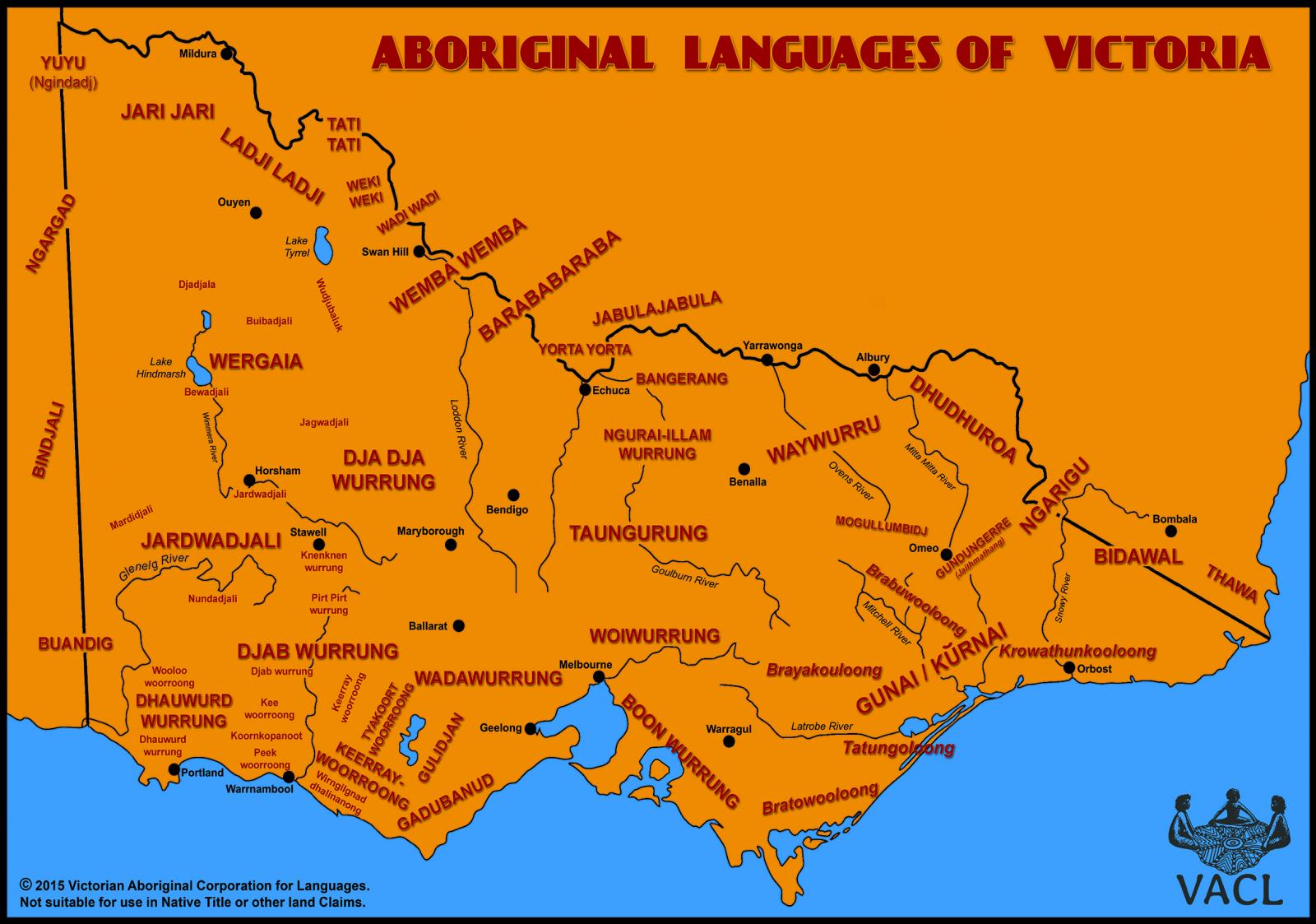Language is not just about how we communicate but is a vital part of who we are as Aboriginal and Torres Strait Islander people.
Language isn’t just words to describe the world around us. It expresses and reflects the world view of a group of people, including beliefs, knowledge and identity. For Aboriginal people, our language is a core part of our culture that reflects our values, stories, songs and our relationship to Country.
Aboriginal languages are very unique and have very specific linguistic traits that reflect culture. For example, in many Aboriginal languages, the words you use differ significantly depending on who you’re speaking with and how you are connected to that person through kinship systems. This shows how important relationships to kin and Community are in our culture.
Language also represents a connection to our ancestors, who have spoken these words and told stories for thousands and thousands of years. As a connection to our ancestors, Country and culture, Aboriginal languages empower Communities and people to be strong in identity and knowledge of language contributes to our wellbeing.
“Language makes you feel whole, you know you are an Aboriginal person but it’s like a missing jigsaw link that you want to put together” - Aunty Fay Stewart-Muir (Boonwurrung)


Image: Victorian Aboriginal Language Map, VACL.
Language in Victoria
There is roughly 38 languages in Victoria, some of these are even furthers divided with specific dialects based on clan and family groups. The Victorian Aboriginal Corporation for Languages (VACL) has created a map of Aboriginal languages in Victoria. While there is some overlap between languages and boundaries are often not clear, the majority are considered to be distinct, separate languages.
Aboriginal language is everywhere in Victoria if you know where to look! Many of the names of suburbs and even streets are Aboriginal names and there continues to be a movement of renaming parks and other locations after Aboriginal people and words as non-Indigenous people recognise the importance of our culture and languages. There are also some landmarks that are known by their traditional name!
A few examples of places with Aboriginal names are:
- Mernda (Woi Wurrung, meaning ‘country’)
- Ballarat (Wadawurrung, meanin ‘resting place’)
- Echuca (Yorta Yorta, meaning ‘meeting of the waters’)
- Darebin (Woi Wurrung, meaning ‘Swallows’, a small, fast flying bird)
- Traralgon (Gunaikurnai, meaning ‘crane feeding on frogs’)
Impact of Colonisation
Colonisation had a huge impact on Aboriginal languages, as British and then Australian governments actively sought to prevent Aboriginal people from practicing culture, including speaking our languages. These practices were devastating, and many languages are considered to be ‘lost’ as there are no fluent speakers left.
Our people have adapted to the changes brought about by colonisation in many different ways, including in the way we speak. Even though English was forced on our mob by the British, we have adapted this language to reflect our cultural values and customs. As a result, many mob in Victoria speak ‘Aboriginal English’, this includes words like deadly, gammin/gammon, tidda, mob and yarn.
Reviving language
There is a lot of work being done to revive many of our languages that have been deemed ‘lost’ with educational tools and programs constantly in development. The Victorian Aboriginal Corporation for Languages (VACL) is the peak body for Aboriginal Languages revitalization in Victoria. They are made up of experts in many different fields including Language Revitalization, Resources Development and Research. VACL have a large range of projects and resources available on their website.


Image: The Gambay First Languages map explores the great diversity of Aboriginal languages across the country.
What can children and young people do to learn language?
If you and your family are interested in learning your mob’s language, there are heaps of different things you can do. You can check out the resources mentioned below, talk to your school about language programs or get a story book or dictionary in language.
Learning a language can be hard and it’s often a very slow process. Even learning some words and phrases is a great way to connect to your deadly culture and be proud, so why not give it a go?
Language resources
Language Apps
Online Resources
- 50 Words Project
- Yorta Yorta Dictionary
- Wurrekangurr - Wamba Wamba/Wemba Wemba Language Resource Website.
- Gambay – First Languages Map
- Living Languages, AIATSIS
